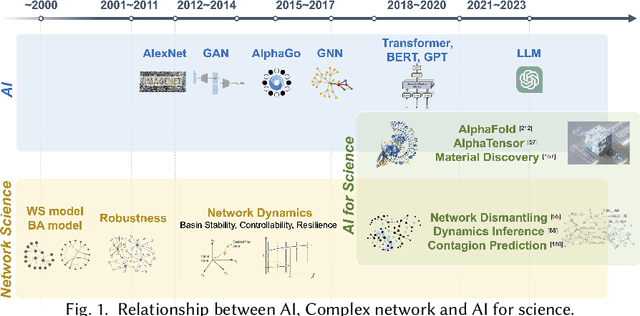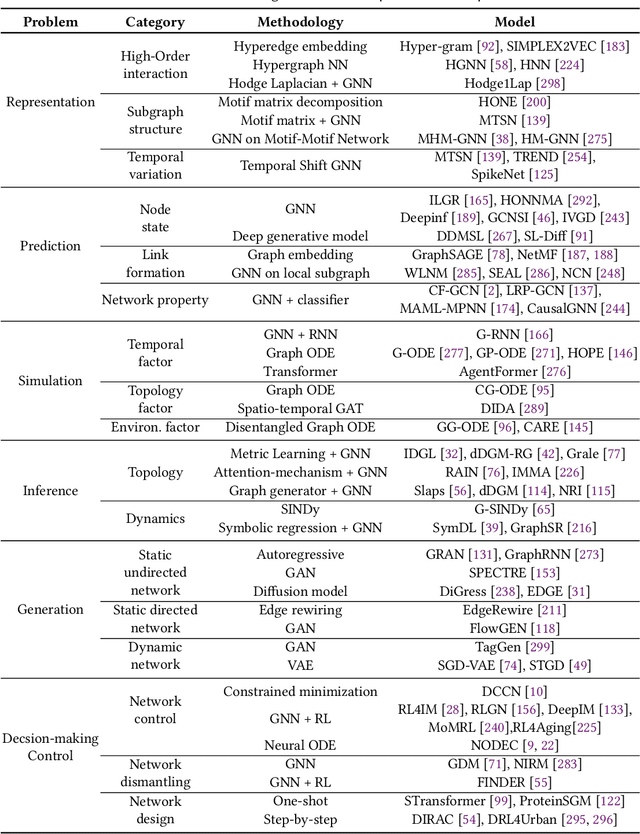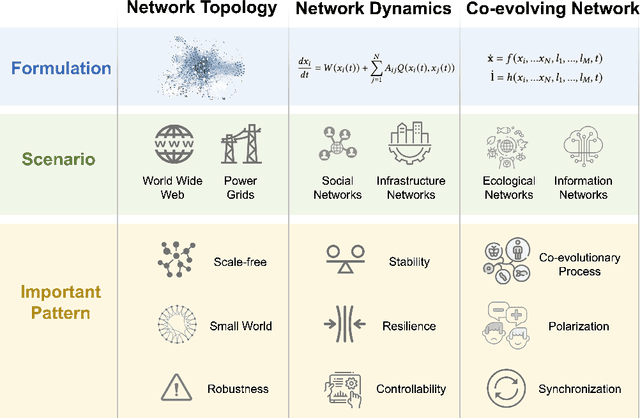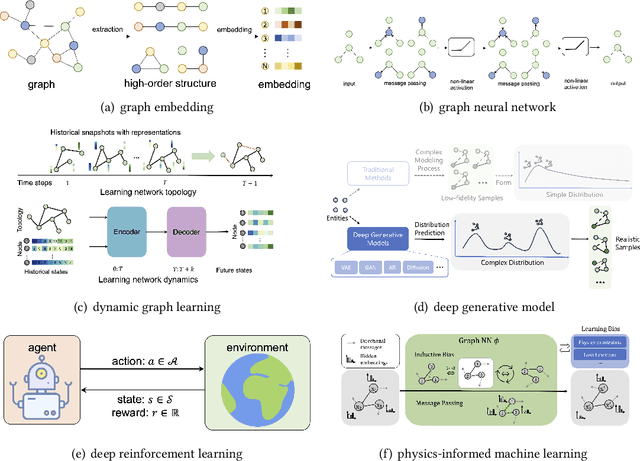Artificial Intelligence for Complex Network: Potential, Methodology and Application
Paper and Code
Feb 23, 2024



Complex networks pervade various real-world systems, from the natural environment to human societies. The essence of these networks is in their ability to transition and evolve from microscopic disorder-where network topology and node dynamics intertwine-to a macroscopic order characterized by certain collective behaviors. Over the past two decades, complex network science has significantly enhanced our understanding of the statistical mechanics, structures, and dynamics underlying real-world networks. Despite these advancements, there remain considerable challenges in exploring more realistic systems and enhancing practical applications. The emergence of artificial intelligence (AI) technologies, coupled with the abundance of diverse real-world network data, has heralded a new era in complex network science research. This survey aims to systematically address the potential advantages of AI in overcoming the lingering challenges of complex network research. It endeavors to summarize the pivotal research problems and provide an exhaustive review of the corresponding methodologies and applications. Through this comprehensive survey-the first of its kind on AI for complex networks-we expect to provide valuable insights that will drive further research and advancement in this interdisciplinary field.
 Add to Chrome
Add to Chrome Add to Firefox
Add to Firefox Add to Edge
Add to Edge